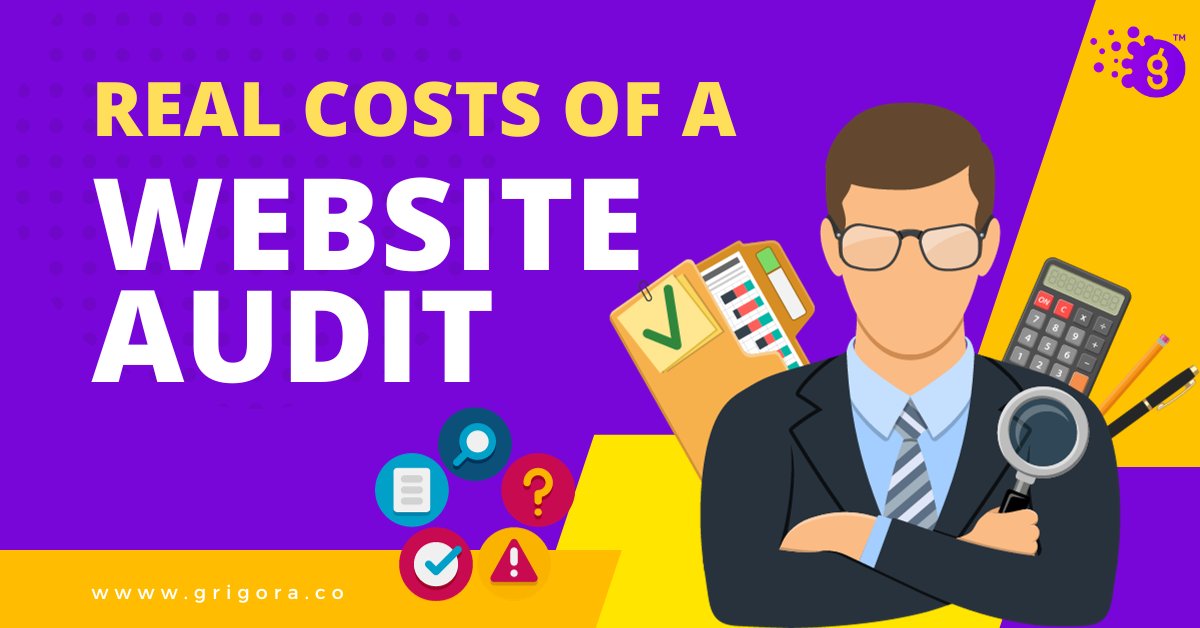Introduction
Why Website Audits are Crucial for Digital Success
An audit is not an expense; it's an investment in the health and longevity of your website.
In today's digital age, having a website is not just an option but a necessity for businesses. However, merely having a website is not enough; it needs to perform well, be secure, and rank high on search engines. That's where website audits come into play. An audit evaluates various aspects of your website, such as its performance, security, and SEO, to identify areas for improvement. It's a critical step in optimizing your online presence and ensuring that you're getting the most out of your website.
The Mystery of Audit Costs
When it comes to website audits, one of the most perplexing questions is the cost. Many business owners and website managers are often surprised by the varying quotes they receive for what appears to be the same service. The truth is, the cost of a website audit can vary widely depending on several factors, which we will delve into in this guide.
What You'll Learn in This Guide
This comprehensive guide aims to demystify the costs associated with website audits. We'll explore the different types of audits, the factors that influence their costs, and how to budget for them effectively. By the end of this guide, you'll have a clear understanding of what goes into a website audit and how to plan for one financially.
Real Costs of a Website Audit
| Type of Audit | Basic Cost | Comprehensive Cost | Additional Costs |
|---|---|---|---|
| SEO Audit | $200 - $500 | $1000 - $3000 | Specialized Tools |
| Performance Audit | $150 - $400 | $800 - $2000 | Load Testing |
| Security Audit | $300 - $700 | $1500 - $4000 | Penetration Testing |
| Content Audit | $100 - $300 | $500 - $1500 | Content Creation |
| Technical Audit | $250 - $600 | $1200 - $3500 | Server Analysis |
Types of Website Audits
SEO Audits: The Backbone of Online Visibility
Search Engine Optimization (SEO) is a critical component of any website's success. An SEO audit evaluates how well your website is optimized for search engines. It looks at various elements like meta descriptions, keyword usage, and backlinks. The cost for an SEO audit can range from a few hundred to several thousand dollars, depending on the depth and complexity of the audit.
Performance Audits: Speed Matters
In the digital world, speed is of the essence. A performance audit assesses how quickly your website loads and identifies bottlenecks that could be affecting user experience and SEO. These audits often involve tools that simulate different loading conditions and can cost anywhere from $200 to $2,000.
Security Audits: Safeguarding Your Digital Assets
With the increasing number of cyber threats, security audits have become indispensable. These audits evaluate the vulnerability of your website to various types of cyber-attacks and recommend measures to improve security. The cost for a security audit can vary widely, often starting at around $1,000 and going up based on the complexity of your website.
Content Audits: Quality Over Quantity
Content is king, but not all content is created equal. A content audit reviews the quality, relevance, and performance of the content on your website. This type of audit can help you understand what's working and what needs improvement, with costs typically ranging from $500 to $3,000.
Technical Audits: The Devil is in the Details
Last but not least, technical audits focus on the nitty-gritty details that can make or break your website's performance. These audits look at issues like URL structures, mobile-friendliness, and site architecture. The cost for a technical audit can start at around $1,000 and can go up based on the website's complexity.
Factors Influencing Audit Costs
Complexity of Your Website
The more complex your website is, the more time-consuming and costly the audit will be. Complexity can refer to the number of pages, the types of content (e.g., videos, interactive elements), and the various functionalities (e.g., e-commerce, user accounts). Generally, larger websites with more features will incur higher audit costs.
Depth of the Audit
Audits can be either basic or comprehensive. A basic audit might involve automated scanning tools and provide a high-level overview. In contrast, a comprehensive audit involves deep dives into each aspect of your website, often including manual checks and detailed recommendations. Naturally, the deeper the audit, the higher the cost.
Expertise of the Auditor
The level of expertise of the person or agency conducting the audit can significantly impact the cost. Experienced auditors who offer specialized insights will generally charge more than those who are less experienced.
Geographic Location of the Auditor
Where your auditor is located can also affect the cost. Auditors in high-cost-of-living areas or countries may charge more than those in regions where the cost of living is lower. However, this is not a hard and fast rule, as expertise and reputation can outweigh geographic considerations.
Hidden and Additional Costs
Specialized Tools and Software
While many auditors have their own set of tools, some audits may require specialized software that comes with additional costs. These could range from advanced SEO analysis tools to security vulnerability scanners. Make sure to ask your auditor if there are any additional costs for specialized tools.
Post-Audit Implementation
After the audit is complete, implementing the recommendations is the next step. This phase often involves additional costs, especially if you need to hire experts to make complex changes to your website. It's crucial to factor these post-audit costs into your overall budget.
Ongoing or Periodic Audits
Some websites benefit from regular audits, especially those that are frequently updated or have dynamic content. Ongoing or periodic audits are an additional cost to consider. These could be quarterly, bi-annual, or annual audits depending on your website's needs.
Budgeting and ROI
Setting a Budget for Your Audit
Budgeting for a website audit is not just about allocating funds; it's about understanding the value that the audit will bring to your business. Consider the long-term benefits, such as improved SEO rankings or enhanced security, when setting your budget.
Calculating the ROI of an Audit
Return on Investment (ROI) is a crucial metric to consider. To calculate the ROI, you'll need to measure the performance improvements that result from implementing the audit's recommendations. This could be in the form of increased traffic, higher conversion rates, or any other key performance indicators relevant to your business.
Strategies for Cost-Effective Audits
There are ways to make your audit more cost-effective. For instance, prioritizing the most critical aspects of your website for the audit can reduce costs. Another strategy is to negotiate package deals if you plan on conducting regular audits.
Choosing Your Auditor

Freelancer vs. Agency: A Cost Comparison
When it comes to choosing who will conduct your audit, you have two main options: freelancers and agencies. Freelancers often offer a more personalized service and may be more affordable. However, they might lack the range of expertise that an agency can provide. Agencies, on the other hand, offer a team of experts but often come with a higher price tag.
Red Flags to Avoid
Be cautious of auditors who promise quick fixes or guarantee drastic improvements in rankings. These are often red flags that indicate a lack of understanding of the complexities involved in website auditing.
Questions to Ask Before Hiring
Before you finalize your decision, make sure to ask potential auditors key questions. These could include their experience level, the tools they use, and whether they provide a detailed report and action plan. These questions can help you avoid hidden costs and ensure you're getting the best value for your money.
Real-World Examples
Success Stories: Audits That Were Worth Every Penny
In this section, we delve into real-world examples where website audits made a significant impact. These success stories serve as a testament to the value of thorough auditing. Whether it was an SEO audit that led to a surge in organic traffic or a security audit that prevented a potential data breach, these cases demonstrate the ROI of investing in a quality audit.
Lessons from Audit Failures
Not all audits are created equal, and some can even be counterproductive. Here, we explore lessons learned from audit failures. Whether it was due to inadequate expertise, poor communication, or failure to implement the recommended changes, understanding these pitfalls can help you make more informed choices.
FAQs
Is a Free Audit Worth It?
While free audits can provide some basic insights, they often lack the depth and comprehensiveness of paid audits. We'll discuss the benefits and drawbacks of opting for a free audit and when it might be a good idea to invest in a more detailed, paid option.
How Often Should I Budget for an Audit?
The frequency of audits can vary depending on your website's needs and the rate of changes you make to it. We'll provide recommended frequencies based on different types of websites, from e-commerce to blogs, to help you plan your audit budget effectively.
Can I Do an Audit Myself to Save Money?
While DIY audits can save you money upfront, they may not be as thorough as those conducted by professionals. We'll explore the risks and potential rewards of conducting an audit yourself and provide tips for those who choose this route.



